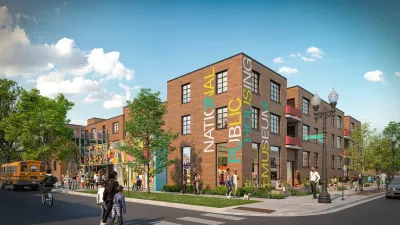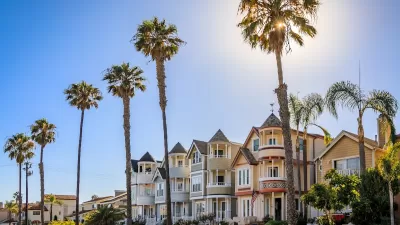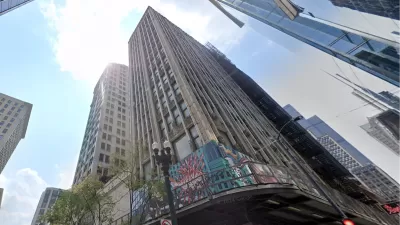The ‘workers’ cottages’ are being replaced with larger, more expensive homes, threatening one of the city’s original forms of affordable housing.

“Workers cottages are ubiquitous in Chicago, though they’re perhaps not as well known by name as their younger sibling, the bungalow.” Writing for WTTW, Nick Blumberg describes this commonly overlooked form of housing. “They’re simple homes of four to six rooms with a gabled roof at the front of the house and an entrance off to one side – usually one story, sometimes two.” According to Blumberg, “The Workers Cottage Initiative estimates there are as many as 60,000 of these homes around the city. The earliest date back to the 1860s, but construction really started to take off in the 1880s.” A quarter of the parcels surveyed in McKinley Park are workers’ cottages, and the Initiative plans to complete more studies next year.
This iconic form of early affordable housing faces destruction as many of the homes are demolished to make way for new houses. “The Workers Cottage Initiative tracked demolitions in Logan Square and Avondale between 2006 and 2020. In Logan Square, 46% of buildings knocked down were workers cottages. In Avondale, 40%.”
“In many places where workers cottages are knocked down, the new homes are larger and more expensive – meaning preservation isn’t just about history, it’s about holding onto the city’s rapidly declining affordable housing.” Elizabeth Blasius of Preservation Futures says the cottages are more than a historical curiosity. “There’s still such a potential for workers cottages to fulfill our housing needs today.”
FULL STORY: Cataloging and Celebrating the Workers Cottage, One of Chicago’s Original Affordable Homes

Alabama: Trump Terminates Settlements for Black Communities Harmed By Raw Sewage
Trump deemed the landmark civil rights agreement “illegal DEI and environmental justice policy.”

Planetizen Federal Action Tracker
A weekly monitor of how Trump’s orders and actions are impacting planners and planning in America.

The 120 Year Old Tiny Home Villages That Sheltered San Francisco’s Earthquake Refugees
More than a century ago, San Francisco mobilized to house thousands of residents displaced by the 1906 earthquake. Could their strategy offer a model for the present?

In Both Crashes and Crime, Public Transportation is Far Safer than Driving
Contrary to popular assumptions, public transportation has far lower crash and crime rates than automobile travel. For safer communities, improve and encourage transit travel.

Report: Zoning Reforms Should Complement Nashville’s Ambitious Transit Plan
Without reform, restrictive zoning codes will limit the impact of the city’s planned transit expansion and could exclude some of the residents who depend on transit the most.

Judge Orders Release of Frozen IRA, IIJA Funding
The decision is a victory for environmental groups who charged that freezing funds for critical infrastructure and disaster response programs caused “real and irreparable harm” to communities.
Urban Design for Planners 1: Software Tools
This six-course series explores essential urban design concepts using open source software and equips planners with the tools they need to participate fully in the urban design process.
Planning for Universal Design
Learn the tools for implementing Universal Design in planning regulations.
Clanton & Associates, Inc.
Jessamine County Fiscal Court
Institute for Housing and Urban Development Studies (IHS)
City of Grandview
Harvard GSD Executive Education
Toledo-Lucas County Plan Commissions
Salt Lake City
NYU Wagner Graduate School of Public Service





























